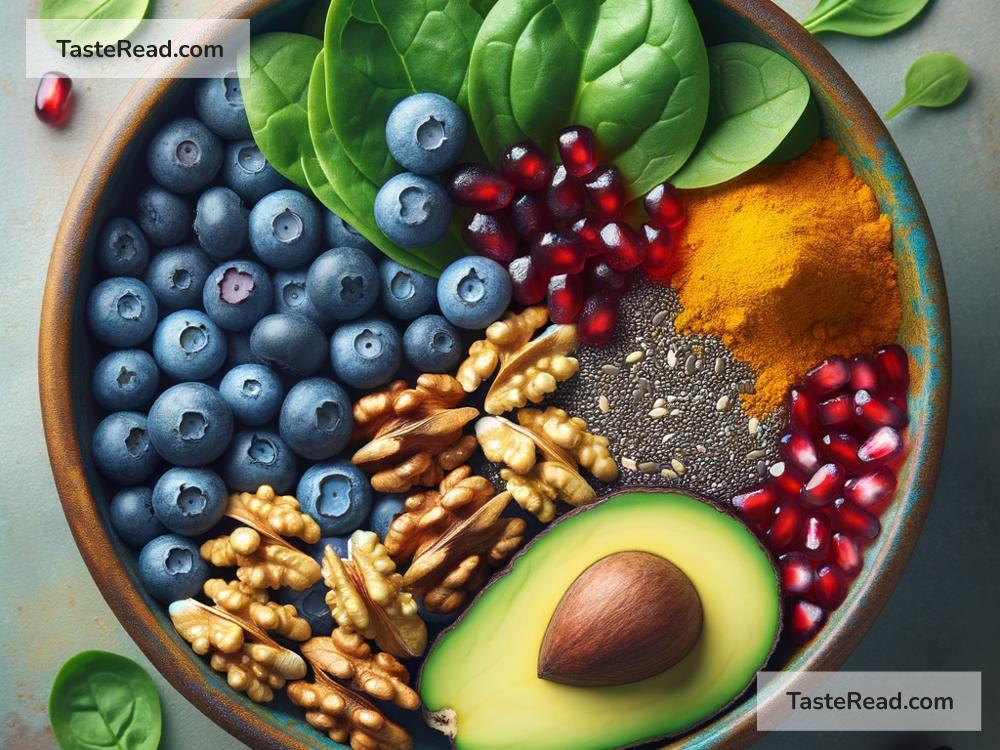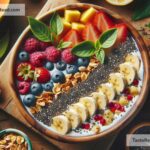Foods for Enhancing DNA Repair: Nourishing Your Body for Better Health
Your DNA is like the instruction manual for your body, providing essential information for growth, repair, and function. Over time, your DNA can naturally face damage due to environmental factors, aging, and lifestyle habits. Fortunately, our bodies are equipped with incredible mechanisms for DNA repair to maintain health and prevent diseases such as cancer. Even better, certain foods can help support these DNA repair processes! In this article, we’ll explore some of the best foods to eat for enhancing DNA repair, explained in simple and easy-to-digest language.
Why Is DNA Repair Important?
DNA is your body’s blueprint. It helps produce proteins and determines how your cells work. Damage to DNA can happen for many reasons, like exposure to sunlight, pollution, cigarette smoke, or simply through natural aging. If DNA damage goes unrepaired, it can lead to mutations, affecting cell function and increasing the risk of chronic diseases like cancer.
Thankfully, your body has systems in place to repair DNA damage, and certain nutrients from foods can help these systems run smoothly. By eating a healthy diet, you provide your body with tools to keep your DNA healthy, repair damage, and prevent disease.
Foods That Support DNA Repair
Here are some foods and nutrients that enhance DNA repair, explained with their benefits:
1. Leafy Greens (Spinach, Kale, Swiss Chard)
Leafy greens are rich in folate (Vitamin B9), which plays an important role in creating and repairing DNA. Folate helps your cells produce new DNA and fix mutations before they become harmful. Eating spinach, kale, and other greens regularly can help ensure your DNA repair system runs effectively.
How to eat: Add spinach to smoothies, throw kale into soups, or enjoy a Swiss chard salad for a simple yet nutritious meal.
2. Berries (Blueberries, Strawberries, Raspberries)
Berries are packed with antioxidants, especially Vitamin C and polyphenols, which help fight damage caused by free radicals. Free radicals are unstable molecules that can harm your DNA, and antioxidants neutralize them before they can cause significant damage.
How to eat: Add berries to your morning oatmeal, blend them into a smoothie, or snack on them throughout the day.
3. Fatty Fish (Salmon, Mackerel, Sardines)
Fatty fish contains a special type of healthy fat called omega-3 fatty acids, which support cell membrane health and help cells maintain proper DNA function. Omega-3s also reduce inflammation, which can play a role in DNA damage.
How to eat: Grilled salmon, tuna salad, or baked mackerel are delicious options to enjoy these heart-healthy fats.
4. Cruciferous Vegetables (Broccoli, Cauliflower, Brussels Sprouts)
Cruciferous vegetables are rich in sulforaphane, a compound known for its ability to activate DNA repair enzymes. Sulforaphane also works as an antioxidant, reducing oxidative stress that can harm your DNA.
How to eat: Steam broccoli as a side dish, roast some Brussels sprouts, or add cauliflower to stir-fries.
5. Nuts and Seeds (Almonds, Walnuts, Flaxseeds)
Nuts and seeds are great sources of Vitamin E and zinc, which help repair DNA and protect cells from damage caused by ultraviolet (UV) rays and toxins. Additionally, flaxseeds are high in omega-3 fatty acids.
How to eat: Snack on a handful of almonds, sprinkle chia or flaxseeds over your yogurt, or toss walnuts into your salad.
6. Tomatoes
The bright red pigment in tomatoes comes from lycopene, a powerful antioxidant that protects DNA from oxidative stress and environmental damage. Lycopene becomes even more potent when tomatoes are cooked.
How to eat: Enjoy tomato soup, pasta with tomato sauce, or slice them into a salad.
7. Green Tea
Green tea is rich in catechins, another group of antioxidants that benefit DNA repair processes. Regular consumption of green tea has been linked to improved cellular health and reduced DNA damage over time.
How to drink: Sip on hot green tea in the morning or brew it cold for a refreshing and healthy drink.
8. Turmeric
Turmeric contains curcumin, a powerful anti-inflammatory compound that also promotes DNA repair. Curcumin activates helpful proteins involved in fixing damaged DNA and protecting it from further harm.
How to eat: Add turmeric to curries, soups, or smoothies. Pair it with black pepper to improve absorption.
Healthy Lifestyle Matters, Too
While eating these foods can help your DNA repair system function more efficiently, it’s also important to adopt other healthy lifestyle habits:
– Avoid smoking and excessive alcohol consumption to limit DNA damage.
– Exercise regularly to support overall cellular health and reduce inflammation.
– Get enough sleep, as your body’s repair processes are most active during rest.
Remember, no single food or habit will miraculously repair your DNA. Focus on eating a variety of nutritious foods and maintaining a balanced lifestyle over the long term.
Final Thoughts
Your DNA is the foundation of your health, so keeping it in good shape is essential. By eating foods like leafy greens, berries, fatty fish, and cruciferous vegetables, you provide your body with important nutrients to support its DNA repair system. Incorporate these foods into your meals daily, along with other healthy habits, for a stronger, healthier you.
Your body has an amazing ability to repair itself, but it works best when you give it the right fuel. Start today and make choices that nourish your DNA!


